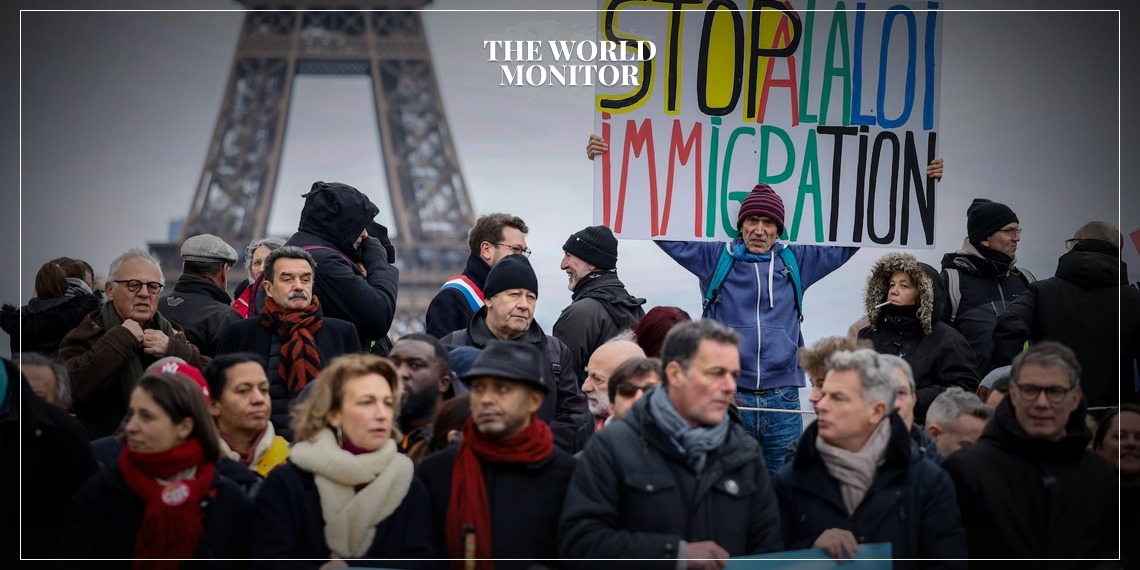Large crowds took to the streets in various French cities, protesting against President Emmanuel Macron’s potential ratification of a new stringent immigration bill.
Critics argue that this legislation aligns with far-right ideologies and contradicts the essence of French principles.
The Interior Ministry reported that around 75,000 individuals participated in these protests nationwide, including about 16,000 in Paris. However, the CGT union, a prominent far-left organization, estimated the number to be around 150,000.
These demonstrations occurred at a pivotal time, just four days ahead of the Constitutional Council’s decision, set for Thursday, on whether the bill aligns with the French Constitution.
This legislation, which passed in December, aims to enhance France‘s power to expel non-citizens deemed undesirable and imposes stricter conditions for non-citizens to access social welfare benefits, among other provisions.
The call for protest was initiated by 200 influential personalities from diverse fields, including the arts and labor unions.
They argue that the legislation panders to the ideology of “national preference,” a concept historically championed by the far-right National Rally party, which prioritizes benefits for French citizens over foreigners.
President Macron, who supported the bill through its passage in parliament, has unexpectedly suggested that some of its articles may be unconstitutional.
According to Le Monde, an anonymous official from the Interior Ministry indicated that the Constitutional Council might invalidate several sections of the bill.
Key aspects of the bill under scrutiny include more stringent requirements for family reunification, such as proving proficiency in French to join a spouse in France.
The legislation also proposes stricter eligibility criteria for social services and housing and reintroduces a repealed law penalizing foreigners in France without proper residency documentation.
This immigration law is seen as part of Macron’s recent shift to the right, especially in the context of the upcoming European elections in June, where far-right parties are gaining traction in polls.
The backdrop of this political move includes the possibility of a win by National Rally leader Marine Le Pen in the 2027 presidential elections, in which Macron, having served two terms, will not be a candidate.






